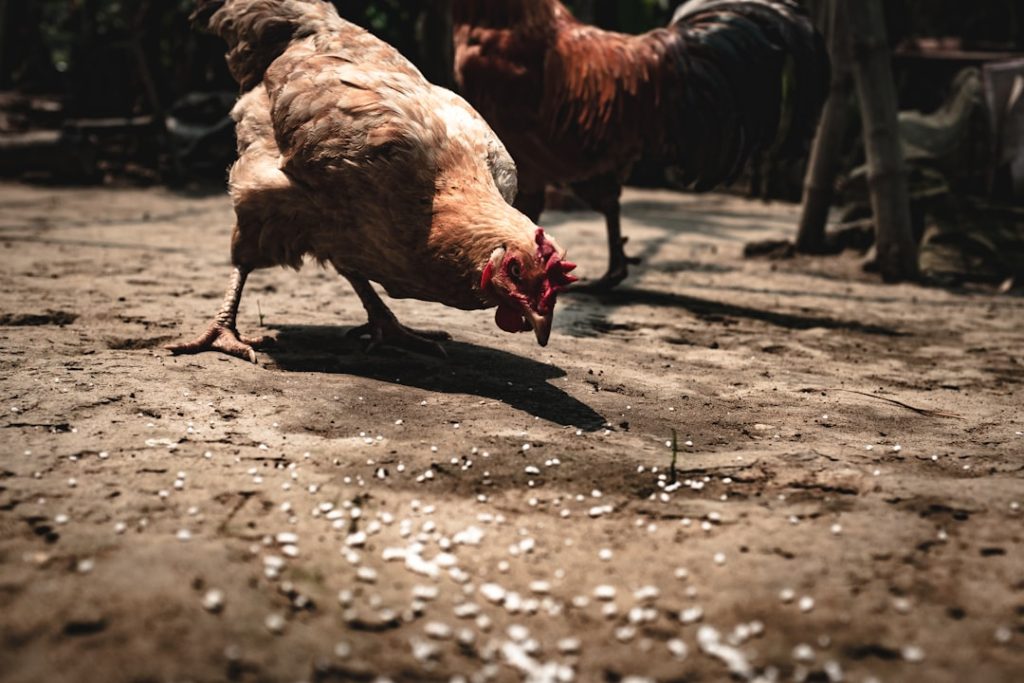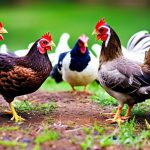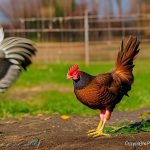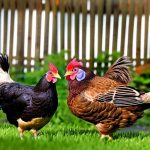Broiler chicken farming is a significant agricultural sector in Zambia, contributing substantially to the country’s economy and food security. The industry has experienced growth due to increasing population and rising consumer preference for poultry meat. Broiler chicken farming is accessible to both small-scale and large-scale farmers, offering relatively low entry barriers and potential for profitability.
The demand for broiler chickens in Zambia remains high, driven by urbanization and changing dietary habits. Successful broiler chicken farming requires knowledge of proper animal husbandry, disease management, and market dynamics. Farmers who implement best practices in broiler production can effectively meet the growing market demand for poultry meat.
Broiler chicken farming plays a crucial role in Zambia’s agricultural landscape, contributing to both food security and economic development. The industry creates a range of employment opportunities across the value chain, including farm workers, feed manufacturers, veterinary services, and transportation providers. Furthermore, broiler chicken production helps address the protein needs of the Zambian population, supporting improved nutrition and food diversity.
With continued investment in infrastructure, research, and farmer education, broiler chicken farming in Zambia has the potential for sustainable growth. The industry can further contribute to rural development, import substitution, and export opportunities, enhancing its overall impact on the national economy.
Table of Contents
- 1 Selecting the Right Breed of Broiler Chickens
- 2 Housing and Infrastructure Requirements for Broiler Chickens
- 3 Feeding and Nutrition for Broiler Chickens
- 4 Health and Disease Management for Broiler Chickens
- 5 Marketing and Selling Broiler Chickens in Zambia
- 6 Tips for Successful Broiler Chicken Farming in Zambia
- 7 FAQs
- 7.1 What are broiler chickens?
- 7.2 What are the key considerations for keeping broiler chickens in Zambia?
- 7.3 What are the housing requirements for broiler chickens in Zambia?
- 7.4 What feed is suitable for broiler chickens in Zambia?
- 7.5 What are the common diseases that affect broiler chickens in Zambia?
- 7.6 What are the marketing opportunities for broiler chickens in Zambia?
Key Takeaways
- Broiler chicken farming is a profitable venture in Zambia due to the high demand for poultry meat.
- When selecting the right breed of broiler chickens, consider factors such as growth rate, feed conversion ratio, and disease resistance.
- Adequate housing and infrastructure are essential for broiler chickens, including proper ventilation, temperature control, and space requirements.
- Feeding and nutrition for broiler chickens should include a balanced diet with the right mix of protein, carbohydrates, vitamins, and minerals.
- Health and disease management for broiler chickens in Zambia involves regular vaccinations, biosecurity measures, and prompt treatment of any illnesses.
Selecting the Right Breed of Broiler Chickens
Key Factors to Consider
When choosing a breed of broiler chickens, several factors must be taken into account to ensure the success of a farming venture in Zambia. These include growth rate, feed conversion ratio, disease resistance, and market demand.
Popular Breeds for the Zambian Climate
The Cobb, Ross, and Arbor Acres are popular broiler chicken breeds known for their fast growth and high meat yield. These breeds are well-suited for the Zambian climate and are preferred by many farmers for their excellent performance.
Local Market Requirements and Support Services
When selecting a breed of broiler chickens, it is essential to consider the specific requirements of the local market. Some breeds may be more suitable for certain regions or consumer preferences. Additionally, farmers should consider the availability of day-old chicks and the support services provided by breeding companies. By carefully evaluating these factors, farmers can choose a breed of broiler chickens that will thrive in the Zambian environment and meet the market demand for poultry meat.
Housing and Infrastructure Requirements for Broiler Chickens
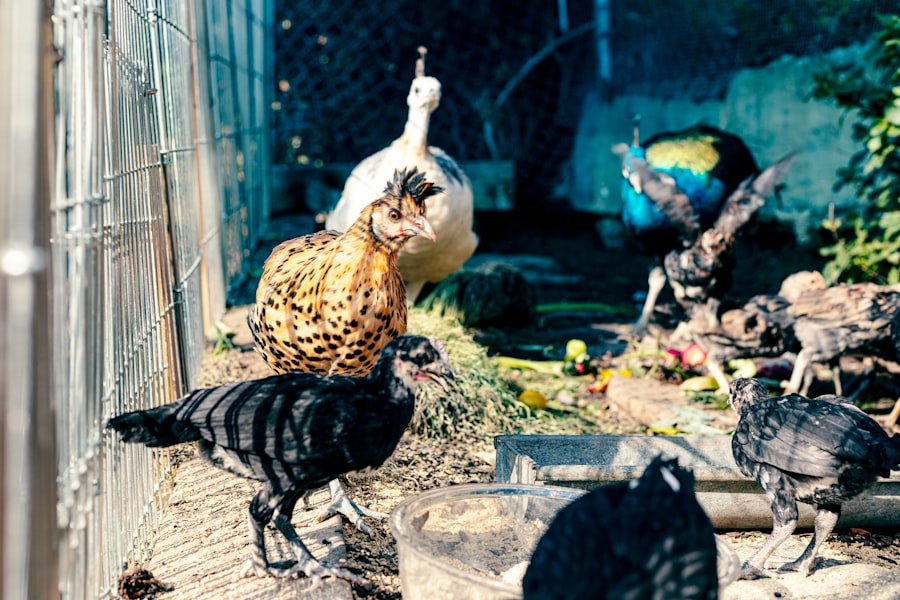
Proper housing and infrastructure are essential for the successful rearing of broiler chickens in Zambia. The housing should provide a comfortable and secure environment for the birds, protecting them from predators, extreme weather conditions, and diseases. The design of the broiler house should allow for adequate ventilation, natural light, and easy access for cleaning and management.
Additionally, the housing should be spacious enough to accommodate the growing number of birds and provide sufficient space for movement. The infrastructure requirements for broiler chicken farming also include feeding and watering systems, heating and cooling equipment, and waste management facilities. Farmers should invest in high-quality feeders and drinkers to ensure that the birds have access to clean water and feed at all times.
Heating and cooling systems are essential for regulating the temperature inside the broiler house, especially during extreme weather conditions. Proper waste management facilities are necessary to maintain hygiene and prevent disease outbreaks on the farm.
Feeding and Nutrition for Broiler Chickens
Feeding and nutrition play a critical role in the growth and development of broiler chickens in Zambia. A well-balanced diet is essential for ensuring optimal growth, meat quality, and overall health of the birds. Broiler chickens require a diet rich in protein, energy, vitamins, and minerals to support their rapid growth rate and muscle development.
Farmers should provide high-quality commercial feed that meets the nutritional requirements of broiler chickens at different stages of growth. In addition to commercial feed, farmers can supplement the diet of broiler chickens with locally available feed ingredients such as maize, soybean meal, sunflower meal, and fishmeal. These ingredients can help reduce feed costs while providing essential nutrients for the birds.
It is important to work with a qualified nutritionist or veterinarian to formulate a balanced diet that meets the specific nutritional needs of broiler chickens in Zambia. By providing proper feeding and nutrition, farmers can ensure that their broiler chickens reach market weight efficiently and produce high-quality meat.
Health and Disease Management for Broiler Chickens
Health and disease management are critical aspects of broiler chicken farming in Zambia. Disease outbreaks can have devastating effects on the flock, leading to high mortality rates and financial losses for farmers. To prevent diseases, farmers should implement strict biosecurity measures on their farms, including controlling access to the farm, disinfecting equipment, and monitoring the health status of the birds regularly.
Additionally, farmers should work with veterinarians to develop vaccination programs and disease prevention strategies tailored to the specific challenges faced in Zambia. Common diseases that affect broiler chickens in Zambia include Newcastle disease, infectious bursal disease, coccidiosis, and infectious bronchitis. Farmers should be vigilant in observing the birds for any signs of illness or distress and seek prompt veterinary care when necessary.
Proper sanitation and hygiene practices are also essential for preventing disease transmission among the birds. By prioritizing health and disease management, farmers can ensure that their broiler chickens remain healthy and productive throughout the rearing period.
Marketing and Selling Broiler Chickens in Zambia

Understanding Target Consumers
Farmers can sell their broiler chickens through various channels, including local markets, supermarkets, restaurants, and direct sales to consumers. It is essential to understand the preferences of target consumers and tailor marketing strategies to meet their needs.
Key Factors to Consider
Additionally, farmers should consider factors such as pricing, packaging, branding, and distribution when selling their broiler chickens. Building strong relationships with buyers and establishing a reliable supply chain are crucial for successful marketing and selling of broiler chickens in Zambia. Farmers should focus on producing high-quality meat that meets food safety standards and consumer expectations.
Creating a Competitive Advantage
By differentiating their products through branding and packaging, farmers can create a competitive advantage in the market. Furthermore, participating in agricultural fairs, trade shows, and networking events can help farmers showcase their products and connect with potential buyers.
Tips for Successful Broiler Chicken Farming in Zambia
Successful broiler chicken farming in Zambia requires dedication, hard work, and attention to detail. Farmers should prioritize proper planning, investment in quality inputs, continuous learning, and adaptation to changing market dynamics. It is essential to stay informed about industry trends, best practices, and technological advancements that can improve productivity and efficiency on the farm.
Additionally, seeking mentorship from experienced farmers or industry professionals can provide valuable insights and guidance for overcoming challenges in broiler chicken farming. Maintaining accurate records of farm operations, financial transactions, and performance metrics is crucial for monitoring progress and making informed decisions. Farmers should regularly evaluate their production processes, identify areas for improvement, and implement changes to optimize efficiency and profitability.
Furthermore, building a strong support network within the agricultural community can provide access to resources, information, and potential partnerships that can benefit the broiler chicken farming business. In conclusion, broiler chicken farming presents significant opportunities for farmers in Zambia to contribute to food security, economic development, and job creation. By selecting the right breed of broiler chickens, providing proper housing and infrastructure, ensuring adequate feeding and nutrition, prioritizing health and disease management, implementing effective marketing strategies, and following best practices for success in broiler chicken farming in Zambia.
With dedication, perseverance, and a commitment to excellence, farmers can build a thriving broiler chicken farming business that meets market demand while contributing to the growth of the poultry industry in Zambia.
If you’re interested in learning more about the best kind of coop for broiler chickens in Zambia, you should check out this article on what kind of coop is best for chickens. It provides valuable information on the different types of coops available and which one would be most suitable for your broiler chickens in Zambia.
FAQs
What are broiler chickens?
Broiler chickens are a type of chicken that is specifically bred and raised for meat production. They are typically ready for slaughter at around 6-8 weeks of age.
What are the key considerations for keeping broiler chickens in Zambia?
Key considerations for keeping broiler chickens in Zambia include providing proper housing, adequate ventilation, access to clean water and quality feed, and disease prevention measures. Additionally, it is important to adhere to local regulations and best practices for broiler chicken farming.
What are the housing requirements for broiler chickens in Zambia?
Broiler chickens in Zambia require housing that provides protection from predators, adequate ventilation, and proper insulation to regulate temperature. The housing should also allow for easy cleaning and maintenance.
What feed is suitable for broiler chickens in Zambia?
Broiler chickens in Zambia require a balanced diet that includes high-quality feed with the right mix of protein, carbohydrates, vitamins, and minerals. It is important to ensure that the feed is free from contaminants and meets the nutritional needs of the chickens at different stages of growth.
What are the common diseases that affect broiler chickens in Zambia?
Common diseases that affect broiler chickens in Zambia include Newcastle disease, infectious bursal disease, coccidiosis, and infectious bronchitis. It is important for farmers to implement disease prevention measures such as vaccination, biosecurity, and proper sanitation to protect their broiler chickens.
What are the marketing opportunities for broiler chickens in Zambia?
In Zambia, there are various marketing opportunities for broiler chickens, including selling to local markets, supermarkets, restaurants, and wholesalers. Additionally, there is a growing demand for broiler chicken products in urban areas, making it a potentially profitable venture for farmers.
Meet Walter, the feathered-friend fanatic of Florida! Nestled in the sunshine state, Walter struts through life with his feathered companions, clucking his way to happiness. With a coop that’s fancier than a five-star hotel, he’s the Don Juan of the chicken world. When he’s not teaching his hens to do the cha-cha, you’ll find him in a heated debate with his prized rooster, Sir Clucks-a-Lot. Walter’s poultry passion is no yolk; he’s the sunny-side-up guy you never knew you needed in your flock of friends!

